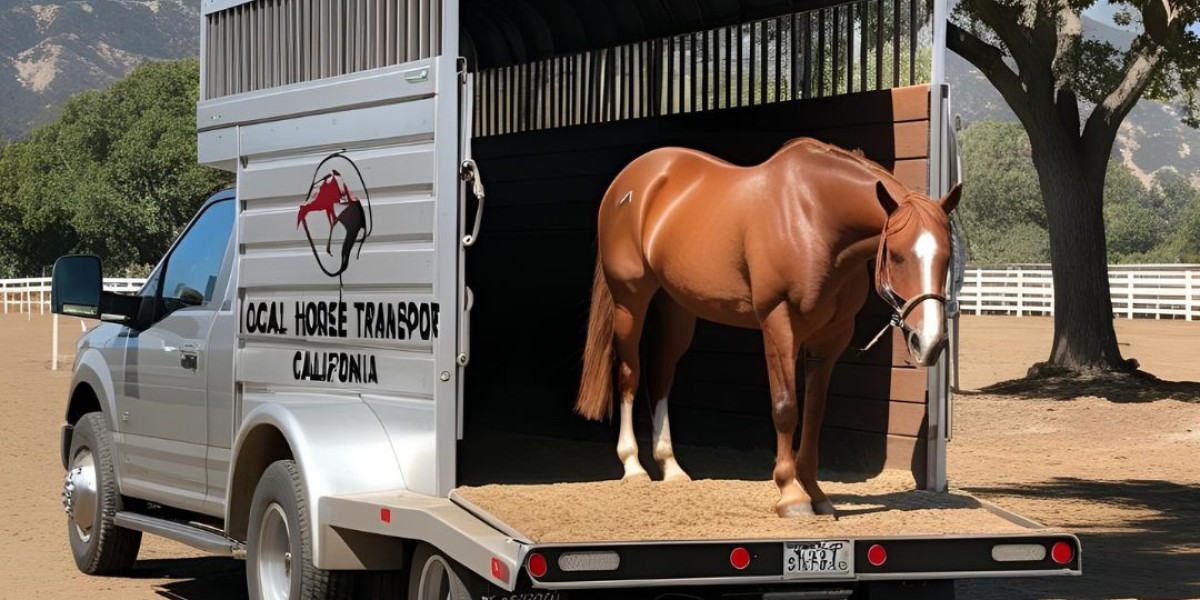Transporting horses is a responsibility that demands expertise, patience, and attention to detail. For equestrians, breeders, competitors, and horse enthusiasts, the well-being of their animals during travel is a top priority. California, with its vast landscapes, thriving equestrian culture, and numerous events, requires specialized care when it comes to transporting horses. Whether it’s for relocation, training, shows, or breeding purposes, horse owners seek reliable and safe transportation solutions that prioritize comfort and security. This guide explores everything you need to know about moving horses within the Golden State, highlighting preparation tips, safety practices, and the importance of choosing experienced transport providers.
Why California Requires Specialized Horse Transportation
California’s unique geography and climate make transporting horses more than just a simple drive. From the coastal breezes of Santa Barbara to the desert heat of Palm Springs, horses encounter diverse environments that can impact their comfort. Long stretches of highways, traffic in metropolitan areas like Los Angeles, and mountainous routes near Lake Tahoe all require professional handling to minimize stress.
The equestrian community in California is also incredibly active, with events such as rodeos, polo tournaments, dressage competitions, and trail riding adventures. Each of these requires timely and reliable horse transport, making expert services essential.
Preparing Your Horse for Travel
Proper preparation is one of the most important aspects of safe horse transportation. Horses, like humans, can become stressed during long journeys. Here are some essential steps:
Health Check: Ensure your horse is examined by a veterinarian before travel. Current vaccinations, health certificates, and Coggins tests may be required depending on the destination.
Hydration and Feeding: Horses should be well hydrated before departure. Offer water regularly during stops to avoid dehydration, especially in warmer climates.
Training for Loading: If your horse is not familiar with trailers, introduce them gradually. Practice loading and unloading to reduce anxiety on the actual day.
Comfortable Gear: Use protective leg wraps or shipping boots to prevent injuries. A well-fitted halter made of leather or breakaway material ensures added safety.
What Makes a Safe Horse Transport Service
Choosing the right transport company is critical to ensuring a smooth journey. Here are qualities that distinguish reliable providers:
Experienced Handlers: Horses require patient and knowledgeable care. Drivers and handlers should be trained in equine behavior and emergency response.
Quality Trailers: Well-ventilated, clean, and spacious trailers reduce stress and keep horses comfortable. Proper suspension systems also minimize vibration.
Regular Rest Stops: Horses benefit from breaks to rest, stretch, and drink water. A responsible company will factor these into the schedule.
Communication: Owners should receive updates about their horse’s journey, offering peace of mind throughout the process.
Tips for Reducing Stress During Travel
A calm horse is a safe horse. While some stress is natural, the goal is to minimize it:
Maintain Familiar Routines: If possible, keep feeding times consistent during travel.
Bring Along Comfort Items: Some horses relax with familiar hay, bedding, or even a travel buddy.
Ventilation Over Air Conditioning: Fresh air circulation is vital to prevent respiratory issues.
Avoid Overcrowding: Horses need adequate space to balance themselves comfortably during transport.
The Role of Professionalism in Horse Transport
Professional horse transporters do more than just drive from point A to point B. They understand equine needs, manage logistics, and maintain high standards of care. From planning routes that avoid heavy traffic to monitoring the horses’ condition during travel, professionals ensure each animal arrives in good health and spirits.
Additionally, reputable services maintain proper licensing and adhere to state and federal animal transportation regulations. This compliance not only ensures safety but also builds trust with horse owners.
Challenges in Horse Transportation
Transporting horses across California presents unique challenges:
Weather Extremes: From scorching desert heat to chilly mountain passes, temperature fluctuations can affect horses.
Traffic Delays: California highways are notorious for congestion, requiring flexible scheduling.
Long Distances: Traveling from Northern to Southern California can take hours, making rest stops crucial.
Event Deadlines: Horses often need to arrive at competitions or shows by a strict schedule, adding pressure to the journey.
Professionals in the industry anticipate these challenges and plan accordingly, ensuring smooth and stress-free experiences.
The Importance of Aftercare
Once horses reach their destination, aftercare is just as important as preparation. Owners should:
Allow horses to rest in a quiet environment.
Provide clean water and familiar feed to help them settle.
Monitor for signs of stress, dehydration, or colic.
Walk them lightly to loosen muscles stiffened by travel.
Proper aftercare ensures horses recover quickly and are ready for their intended purpose, whether it’s competition, breeding, or leisure riding.
Community and Culture of Horse Transport in California
California has a thriving equestrian culture, from the ranches of Central Valley to the equestrian estates of San Diego County. Horse transporters are a vital part of this community, connecting owners, breeders, and competitors. Many transport companies develop long-term relationships with clients, becoming trusted partners in every journey.
Events such as county fairs, horse shows, and rodeos rely heavily on reliable transport. Without these services, participation in California’s vibrant equestrian life would be nearly impossible.
Why Professional Care Matters
Horses are not cargo—they are living beings with emotions, instincts, and physical needs. Unlike shipping goods, transporting horses requires empathy and expertise. Professional transporters understand how to keep horses calm, recognize signs of distress, and respond quickly if challenges arise. This attention to detail ensures the safety and health of horses at every stage of the journey.
Horse Shipping California: A Trusted Solution
When it comes to relocating horses, whether across the state or within local regions, horse shipping California services provide the expertise, equipment, and dedication required to ensure safe travel. Owners can rest assured knowing their animals are handled with care, transported in well-equipped trailers, and monitored by experienced handlers throughout the trip. With California’s diverse landscapes and active equestrian community, choosing a reliable transport service isn’t just convenient—it’s essential.
Final Thoughts
Transporting horses in California is a task that combines logistics with compassion. From preparation to aftercare, every step plays a role in maintaining a horse’s well-being. Professional services offer peace of mind, ensuring horses travel comfortably and arrive safely at their destination.
For horse owners, investing time in choosing the right transport provider is one of the most important decisions they can make. With the right support, the journey becomes less about stress and more about opportunity—helping horses and their owners continue thriving in California’s vibrant equestrian world.







